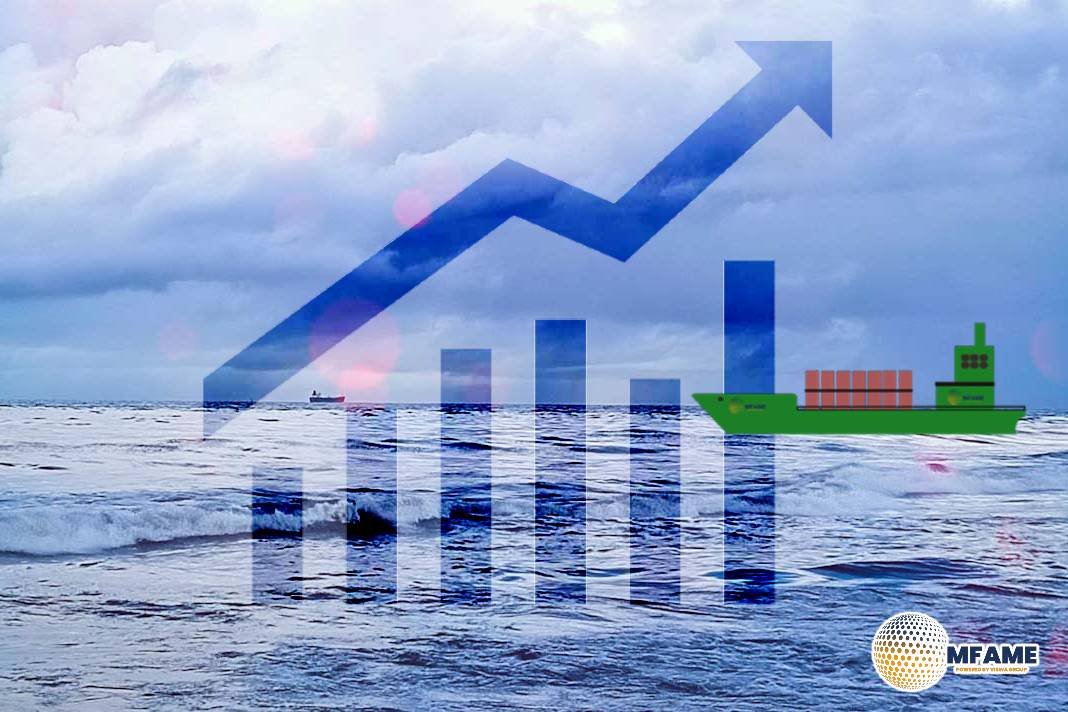 Xeneta reports in its Weekly Ocean Container-Shipping Market Update (20 Nov 2025) that the ocean freight market is seeing diverging trends across major trade lanes.
Xeneta reports in its Weekly Ocean Container-Shipping Market Update (20 Nov 2025) that the ocean freight market is seeing diverging trends across major trade lanes.
Market Snapshot & Capacity Trends
-
Spot rates (as of 20 Nov) show:
-
Far East → US West Coast: US$ 2,190 / FEU
-
Far East → US East Coast: US$ 2,838 / FEU
-
Far East → North Europe: US$ 2,367 / FEU
-
Far East → Mediterranean: US$ 2,943 / FEU
-
North Europe → US East Coast: US$ 1,570 / FEU
-
-
Offered capacity (4-week rolling average, week of 17 Nov):
-
Far East → US West Coast: +5.4% week-on-week
-
Far East → US East Coast: +11.4%
-
Far East → North Europe: +4.8%
-
Far East → Mediterranean: +8.7%
-
North Europe → US East Coast: +10.7%
-
-
Notably, carriers are increasing capacity across all five major trade lanes for the second week in a row.
-
The biggest capacity jump is on Far East → US East Coast, driven by double sailings: Ocean Alliance’s Ever Focus (from Busan) and Texas Triumph (from Ningbo-Zhoushan) are both calling Savannah, Georgia just before Christmas after transiting the Panama Canal.
-
On the North Europe → US East Coast trade, offered capacity has surged to a 28-month high, nearing 60,000 TEU (4-week average). That represents a 55.5% increase compared to just a month ago, with a strong contribution from non-alliance carriers (up 157.1%) and the Gemini Alliance (up 42.3%). xeneta.com
Rate Movements & Demand Dynamics
-
Far East → US East Coast: Capacity appears to be outpacing demand — as spot rates have dropped 2.8% week-on-week and are 23% below the 1 Nov peak.
-
Far East → US West Coast: Rates dropped 3.2% this week — continuing a downward trend for the second week in a row.
-
Far East → Europe (North Europe & Mediterranean): Contrary to the U.S.-bound trades, average spot rates are rising — up 5.6% into North Europe and 4.1% into the Mediterranean.
-
Because capacity is also increasing on these European trades, Xeneta interprets the trend as a sign of strong demand into Europe.
Analyst Insight (Peter Sand, Xeneta)
-
Peter Sand, Chief Analyst at Xeneta, notes “striking differences” between shipping dynamics into Europe versus the U.S.
-
He argues that healthy demand in Europe is helping support rising rates, even as capacity increases.
-
In contrast, for U.S.-bound trades, he suggests that excess capacity may be outstripping demand, causing the recent rate declines.
-
Looking ahead to 2026, Sand expects these divergent patterns to continue:
-
Demand into Europe could be fueled by more Chinese exports shifting away from North America.
-
Meanwhile, U.S.-bound volumes may face headwinds from trade policy, which could dampen ocean container demand and impact consumer imports.
-
Did you subscribe to our daily Newsletter?
It’s Free — Click here to Subscribe!
Source: Xeneta

























